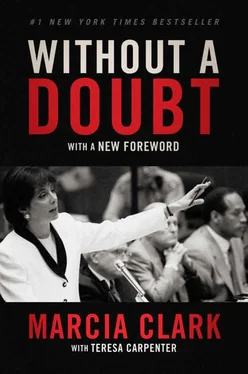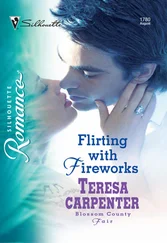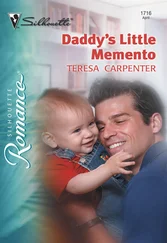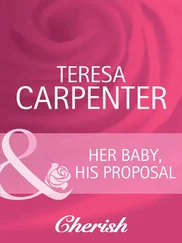“ Somethings wrong .” It was the most unscientific thing I’ve ever heard a forensic expert say. It was, in fact, Lee’s way of helping the defense without saying anything.
“ Something’s wrong! ” Barry Scheck treated it like a message from God, and repeated it like a mantra throughout his summation, suggesting disingenuously that Lee’s comment referred to the prosecution’s entire case.
In fact, Hank disarmed this insinuation on cross. Wasn’t it common, he asked Lee, for a forensic scientist to see something that he couldn’t explain? Lee admitted that it was.
“That doesn’t mean something is wrong , does it?” Hank pressed.
“No,” conceded Dr. Lee.
Later, when I learned that our jurors had cited Dr. Lee’s testimony as their prime reason for discounting the absolutely definitive physical evidence we had presented over the course of months at trial, I knew the bad vibes I’d been getting from the jury box weren’t just figments of my imagination. They were tuning out for the prosecution and tuning in for the defense. Hank might have been asking Dr. Lee about his favorite punk-rock group for all they cared or listened. Once they heard the ominous proclamation “Something’s wrong,” it became in their minds an emblem for our entire case. It became synonymous with the conditions of society in general. “Something’s wrong” in a country where racism flourishes and the law has been known to be dispensed in unequal portions.
We had struck down every single claim made to support a “conspiracy.” But our streak of luck was at an end. By the time Lee finished his testimony in August 1995, the focus of the trial no longer bore any relevance to the evidence. Instead, all eyes were fixed on what was wrong-wrong with a racist cop, wrong with the legal system, wrong with America.
And all of this-all of what was wrong-was to be symbolized by one man, Mark Fuhrman.
It was early July when I first got a hint of the disaster that would ultimately ruin us. I was feeling a little overwhelmed that day. The case was dragging on far longer than expected. Johnnie had once estimated that he would wrap up his case within the month. I’d hoped to spend more time with my children before school started. But the Glorious Fourth had come and gone, and there was no end in sight.
Bill Hodgman buzzed and asked me to come to his office immediately. He looked ashen.
“Marcia,” he told me. “We’ve heard a rumor that Mark Fuhrman may have been collaborating with some author to write a book. Our source says Mark used racial epithets.”
Maybe I was tired, but this sounded to me like just one more of the bullshit rumors we’d had to entertain, investigate, and dismiss in recent months.
“The good news,” Bill continued, “is that they were apparently composing a work of fiction where Mark played a racist character.”
If this was true, the book would be irrelevant to our case. Still, that wouldn’t stop the defense from trying to exploit it. Bill said he was already checking it out.
I returned to my office, where EDTA reports, MacDonell binders, notes for the Rieders cross, and texts illuminating the mysteries of bloodstain patterns blanketed the surface of my desk.
“Maybe,” I whispered to myself, “it will just go away.”
It didn’t. Reports kept filtering in. The project was a movie script and Fuhrman had made tapes in the process. His collaborator was a would-be screenwriter named Laura Hart McKinny, who had retained lawyers in Los Angeles. Lawyers to do what? Shop the screenplay? Sell the tapes?
We had to find out what was in those tapes. Chris wrote a subpoena at warp speed-we were under the impression that the goods were instate-and Ito approved it. But before we could serve, we learned that the defense had already located McKinny; she had taken some obscure academic post in North Carolina. They were going after her with their own subpoena. The problem was this: a California judge can’t demand a witness or a tape from another state unless that state’s courts agree to honor the subpoena. So Johnnie himself, with Lee Bailey riding shotgun, headed to the Tar Heel State to make their arguments.
Word got back to us that Johnnie didn’t play real well in North Carolina. The judge there barely hid his contempt for the defense’s race strategy. I had to smile. Johnnie had gotten a taste of what this trial would have been like if he hadn’t been blessed with Lance Ito. The subpoena was denied on the grounds that McKinny’s tapes didn’t constitute material evidence.
I knew that was not the end of it. The defense was sure to appeal, and they did. In short order, the subpoena was granted and the tapes, along with Ms. McKinny, were on their way to California. Well, we’d expected that.
It would be two weeks before we could get those tapes to make our own transcriptions. In the meantime, I’d gotten some idea of what they contained by reading transcripts of the North Carolina hearing. Fuhrman and McKinny had met periodically over a period of about ten years. During that time he spun out tales for her like Scheherazade. We didn’t know all he’d said, but it was clear that the tapes contained at least one thing that was going to be trouble for us. Big, big trouble.
Fuhrman had uttered the N-word on those tapes. And Johnnie had made sure to get that on the record.
Oh, God .
The only glimmer of hope here was that Mark had simply been helping McKinny develop a character for a work of fiction. The racial epithets, she insisted, were used “in the context of developing a story… It wasn’t a biography of Mr. Fuhrman’s life.” She went on to say that these sessions gave her “information about ideas and feelings that some people might have about African Americans. I don’t know that it reflects his feelings about African Americans.”
But I sure knew how it would sound.
On August 11, McKinny’s attorneys appeared before Lance to turn over the tapes. They looked as if they’d never set foot in a courtroom. Actually, they looked barely old enough to shave: young, inexperienced guys who thought they’d caught a rocket to fame and fortune. They didn’t get it-once the defense got those tapes, it would be only a matter of hours before they were leaked to the press. By then, they would have a commercial value of zero. Inside Edition doesn’t fork out the big bucks for stuff that’s playing free on national television.
I was the one who raised the possibility of leaks, and I saw the lawyers’ eyes go wide with panic. They immediately asked Ito for a protective order, which he granted. But I knew it wasn’t worth the paper it was printed on. Everyone was shocked- shocked , mind you-when, not long after the tapes reached attorneys for both sides, they were leaked to the press.
Our steno pool worked overtime transcribing those fifteen hours of tape. When, at last, a copy reached my desk, I curled up in my chair like a wary cat, lit a Dunhill, took a deep breath, and started to read.
Every racial slur imaginable. “Those niggers, they run like rabbits.” Every demeaning stereotype. “Nigger driving a Porsche that doesn’t look like he’s got a $300 suit on, you always stop him.” Every fear that a black man could have about a racist cop, fulfilled. “How do you intellectualize when you punch a nigger? He either deserves it or he doesn’t.”
Did Mark actually mean these things? Even if he was, as McKinny claimed, spinning out a fictional persona, did he envision this character as a villain or a hero?
If African Americans got rough treatment, women got just as bad. I consider myself fairly well versed in the language of profanity, but Fuhrman had come up with some slurs I’d never even heard.
Читать дальше












